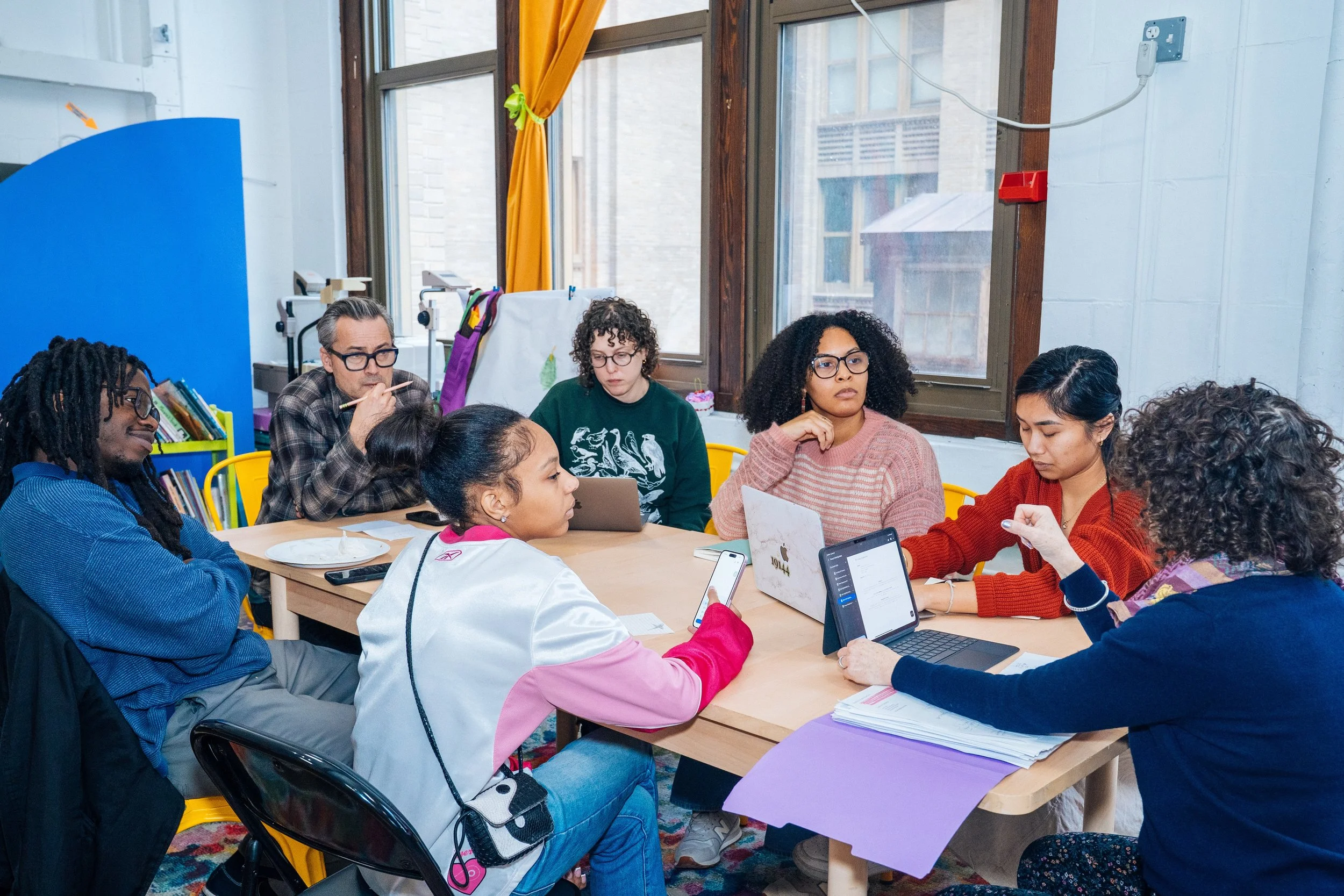People’s Budget working group
In fall 2025, the People’s Budget Office brought together a working group to reimagine Philadelphia’s budget process. Spurred by the lack of opportunities to shape the budget from its inception, we wanted to imagine and manifest new pathways for community ownership in the municipal budget process.
It’s important to us that this imaginative project began with collective learning. The working group was made up of neighbors, artists, activists, advocates, and legislative actors. Together, we learned from experts in the field like Shari Davis, Marissa Waxman, and Aaron Landsman. We dove into global participatory budgeting lessons, and dreamt up new ways of public participation in the budget process.
Sessions mixed traditional research—reading, writing, and discussion—with experimental approaches like theater, visual mapping, and other playful tools for exploring the budget.
Up Next
Hearing on Equitable Public Budgeting with City Council Committee on Global Opportunities and Creative/ Innovative Economy
(POSTPONED - NEW DATE TBD)
City Hall, Room 400
Working Group Members, fall 2025
Aaron Brokenbough Jr, Aaron Couch, Amy Lokoff, Apurva Tandon, Brisa Diaz-Zorrilla, Christina Morton, Christopher Cannito, Craig Terry, Frances Almodovar, Jenna Lam, Jordan Levy, Karim Sharif, Kelly Casanova, Kennedy Brooks, Lisa Jo Epstein, Lixandra Diaz Portuondo, Margaret Guerra, Nora Bryne, Paige Van De Winkle, Pallavi Rao, Phoebe Bachman, Prudence Katze, Sam Ganz, Samantha Yannucci, Sarah Bishop-Stone, Shivaani Selvaraj, Tess Patricia, Thomas Quinn, Wanya Allen


